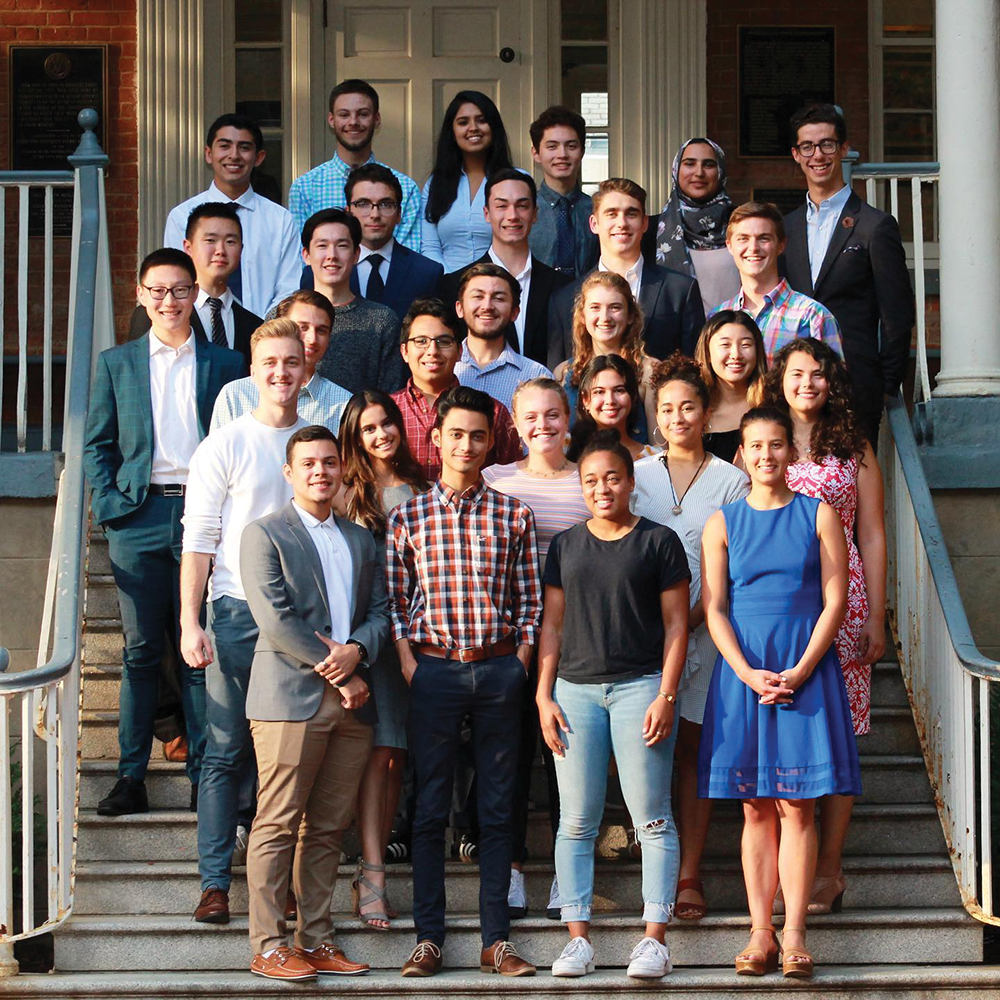Leonardo Teixeira (COL ’21), speaker of the Georgetown University Student Association Senate, resigned from his role Jan. 7, leaving Senate Vice Speaker Melanie Cruz-Morales (COL ’22) to fill the speaker position.
Teixeira, who joined the GUSA Senate as a Class of 2021 senator in 2019, was elected to the speaker position in September 2020. The senate will continue to improve under the leadership of the new speaker, Teixeira wrote in his resignation letter.
“I am incredibly proud of my tenure in the senate, and especially of my time spent leading it. My goal has always been to depart from this having left it in a better state than it was once I entered in the spring of 2019. I can say with certainty that this is the case,” Teixeira wrote. “The caliber and character of the senators remaining in this body convince me that I am both tremendously proud of the direction I helped this senate to go in and tremendously confident that I leave the body in good, capable hands.”

Teixeira did not cite any specific reasons for his resignation from his speaker and senate positions in his letter, and he did not respond to The Hoya’s request for comment.
GUSA Senator Eric Perez (COL ’23) was elected to fill the senate vice speaker position at a GUSA meeting Jan. 10.
The GUSA Election Commission will not be holding elections to fill Teixeira’s senate seat, however. Many seniors have no interest in running for GUSA so late in the year and holding another election may cause unnecessary commotion, according to Cruz-Morales.
“This decision was not made lightly, but we all came to the conclusion that this was probably for the best,” Cruz-Morales said at a GUSA Senate meeting Jan. 10. “It would also cause a commotion to create another election, and thus it would be a distraction from the productivity the senate needs to be doing.”
Teixeira’s work as senate speaker this past semester has helped make the senate more accessible and welcoming, according to Cruz-Morales who has her own agenda for her term.
“As speaker, I am committing to work to take down the barriers that inhibit entry for people who are interested in GUSA work, especially for those from marginalized communities,” Cruz-Morales wrote in an email to The Hoya. “I want to help uplift the voices of those in the Senate and ensure that all the women of color in the Senate get the recognition that they deserve.”
Cruz-Morales said she hopes to restructure the senate, removing any unnecessary hierarchies and titles to focus the senate on community.
“One of our main projects that the 15th Senate is trying to figure out, is how GUSA can actually remove all of the deadweights that have prevented us from creating actual change, restructure it, and aim to create a structure that isn’t hierarchical but revolves around community, that way we can truly make a difference and do what we were elected to do, which is to create progressive change and progressive legislation,” Cruz-Morales wrote.
The senate needs to undergo major changes, including massive restructuring and the elimination of Robert’s Rules of Order, a formal set of guidelines that restricts how the senate can run meetings and vote on legislation, to actually be helpful for the student body, according to Perez.
“My goal as vice speaker isn’t to just take up a title, or just be assistant to the speaker, but to use the role’s larger capacity for advocacy to deconstruct a lot of the body’s tendency toward toxicity, facilitate more informal honest discussions with folks about how they’re feeling, how leadership can best support them, etc., and make sure radical voices and solutions are in meetings with admin,” Perez wrote in an email to The Hoya.
The current hierarchical senate structure fosters a more competitive environment since many students are motivated to join the senate out of personal ambitions rather than an actual interest in making change, according to Perez.
“The work that I am doing now is to address how the senate breeds this sort of toxicity structurally by creating more opportunities for informal interactions and communication, removing any barriers to entry for anyone interested in senate work, and just generally getting folks in the mindset of thinking of us as a community,” Perez wrote. “We can’t get work done if we don’t know each other.”
Perez said he is looking forward to working with Cruz-Morales to break down existing hierarchies in GUSA.
“Speaker Melanie and I have a great relationship. We’ll be working alongside one another, but we’re also best friends,” Perez wrote. “Because the relationship between speaker and vice speaker often ends up with one person working as the leader and the other as a sort of secretary, I felt we had a really unique opportunity to redefine the relationships between senate leadership.”




















